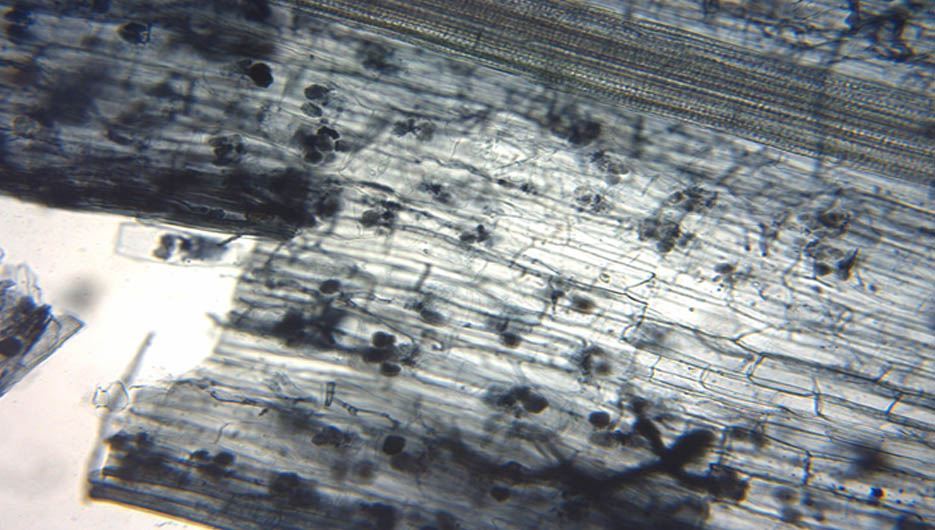
Abiotic stresses hamper plant growth and productivity. Climate change and agricultural malpractices like excessive use of fertilizers and pesticides have aggravated the effects of abiotic stresses on crop productivity and degraded the ecosystem. There is an urgent need for environment-friendly management techniques such as the use of arbuscular mycorrhizal fungi (AMF) for enhancing crop productivity. AMF are commonly known as bio-fertilizers. Moreover, it is widely believed that the inoculation of AMF provides tolerance to host plants against various stressful situations like heat, salinity, drought, metals, and extreme temperatures. AMF may both assist host plants in the up-regulation of tolerance mechanisms and prevent the down-regulation of key metabolic pathways. AMF, being natural root symbionts, provide essential plant inorganic nutrients to host plants, thereby improving growth and yield under unstressed and stressed regimes. The role of AMF as a bio-fertilizer can potentially strengthen plants’ adaptability to changing environment.
Begum, N., Qin, C., Ahanger, M. A., Raza, S., Khan, M. I., Ashraf, M., … Zhang, L. (2019, September 19). Role of Arbuscular Mycorrhizal Fungi in Plant Growth Regulation: Implications in Abiotic Stress Tolerance. Frontiers in Plant Science. Frontiers Media S.A. https://doi.org/10.3389/fpls.2019.01068


